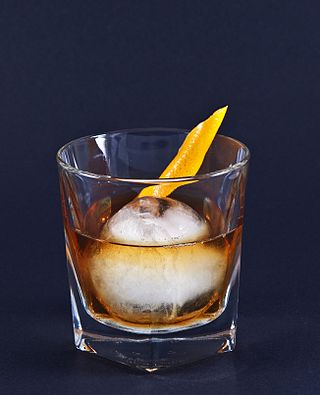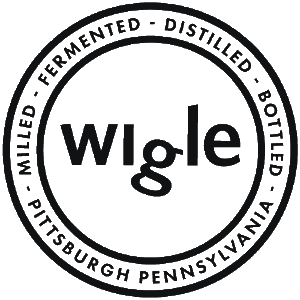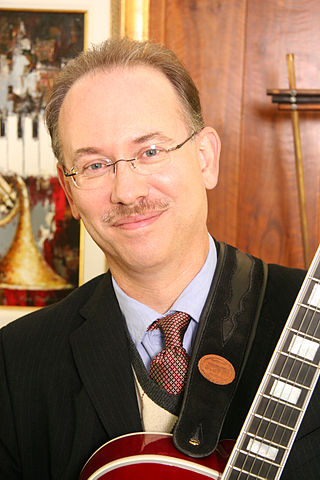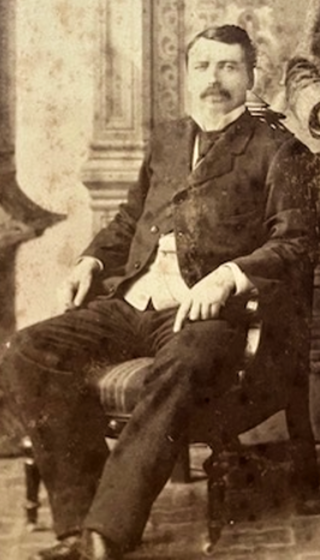
The old fashioned is a cocktail made by muddling sugar with bitters and water, adding whiskey, and garnishing with an orange slice or zest and a cocktail cherry. It is traditionally served with ice in an old fashioned glass.

The Whiskey Rebellion was a violent tax protest in the United States beginning in 1791 and ending in 1794 during the presidency of George Washington. The so-called "whiskey tax" was the first tax imposed on a domestic product by the newly formed federal government. Beer was difficult to transport and spoiled more easily than rum and whiskey. Rum distillation in the United States had been disrupted during the American Revolutionary War, and whiskey distribution and consumption increased afterwards. The "whiskey tax" became law in 1791, and was intended to generate revenue for the war debt incurred during the Revolutionary War. The tax applied to all distilled spirits, but consumption of American whiskey was rapidly expanding in the late 18th century, so the excise became widely known as a "whiskey tax". Farmers of the western frontier were accustomed to distilling their surplus rye, barley, wheat, corn, or fermented grain mixtures to make whiskey. These farmers resisted the tax. In these regions, whiskey often served as a medium of exchange. Many of the resisters were war veterans who believed that they were fighting for the principles of the American Revolution, in particular against taxation without local representation, while the federal government maintained that the taxes were the legal expression of Congressional taxation powers.

Rye whiskey can refer to two different, but related, types of whiskey:

Tennessee whiskey is straight whiskey produced in the U.S. state of Tennessee. Although it has been legally defined as a bourbon whiskey in some international trade agreements, most current producers of Tennessee whiskey disclaim references to their products as "bourbon" and do not label them as such on any of their bottles or advertising materials. All current Tennessee whiskey producers are required by Tennessee law to produce their whiskeys in Tennessee and – with the sole exception of Benjamin Prichard's – to use a filtering step known as the Lincoln County Process prior to aging the whiskey. Beyond the perceived marketing value of the distinction, Tennessee whiskey and bourbon have almost identical requirements, and most Tennessee whiskeys meet the criteria for bourbon.
Conecuh Ridge Whiskey is a type of whiskey produced and officially marketed as "Clyde May's Alabama Style Whiskey" by Conecuh Ridge Distillery Inc. It is marketed as a high-quality aged moonshine whiskey which was produced illegally in Alabama during the mid to late 20th century. The brand was legalized by the moonshiner's son Kenny May.

Crown Royal, also known as Seagram's Crown Royal, is a blended Canadian whisky brand created by Seagram and owned by Diageo since 2000. Production of Crown Royal is done at Gimli, Manitoba, while the blending and bottling of the whisky are done in a facility in Amherstburg, Ontario.
The Philadelphia Whiskey Festival is annual festival held in November, and it is sponsored by the Pennsylvania Liquor Control Board and Philadelphia Magazine. Over sixty distilled spirits producers present a wide variety of spirits for tasting, including: whiskey, Canadian and Irish whiskies, Bourbon, Scotch, single malts, tequila, rum, gin, vodka and cognac.

American whiskey is whiskey produced in the United States. American whiskeys made from mashes with at least 51% of their named grains include bourbon whiskey, rye whiskey, rye malt whiskey, malt whiskey, wheat whiskey, Tennessee whiskey, and corn whiskey.

Schenley Industries was a liquor company based in New York City with headquarters in the Empire State Building and a distillery in Lawrenceburg, Indiana. It owned several brands of Bourbon whiskey, including Schenley, The Old Quaker Company, Cream of Kentucky, Golden Wedding Rye, I.W. Harper, and James E. Pepper. Schenley Industries was also the owner of the producer of Cruzan Rum. It also owned a controlling interest in Blatz beer and made a Canadian whisky called Schenley Reserve, also called Schenley Black Label. It was the only liquor available to submarine officers at Midway in World War II, where it was held in low regard and known as "Schenley's Black Death". It also imported Dewar's White Label Scotch.

Benjamin Prichard's Tennessee Whiskey is a brand of Tennessee whiskey produced in the small community of Kelso, Tennessee in the United States. Although it is produced by one of only two distilleries operating in Lincoln County – and its unaged variation is named Lincoln County Lightning – Prichard's is not produced using the Lincoln County Process. Due to a special grandfathering exemption under a Tennessee law enacted in 2013, the Prichard's distillery in Kelso is the only producer allowed to label its product as "Tennessee Whiskey" without using this process. Prichard's whiskey is produced entirely using pot stills rather than column stills.

The Guckenheimer Warehouse, or the former Guckenheimer Whiskey Warehouse, is located at 125 First Avenue in the Downtown neighborhood of Pittsburgh, Pennsylvania. The building served as the warehouse for the Guckenheimer Whiskey barrels, which were distilled in Freeport, Pennsylvania, until prohibition caused the company to shut down.

Boyd & Blair Potato Vodka is a brand of American made vodka distilled in Glenshaw, Pennsylvania, by Pennsylvania Pure Distilleries, LLC. This small-batch, award winning vodka is made from Pennsylvania potatoes using a "think-local" philosophy. The potatoes used are grown in Pennsylvania's Somerset, Butler, and Schuylkill Counties. The distillery is located in the former Glenshaw Glass works in Shaler Township, Pennsylvania

Wigle Whiskey is an artisan small batch whiskey distillery in the Strip District neighborhood of Pittsburgh. Wigle Whiskeys are the flagship products of the Pittsburgh Distilling Company, LLC, which is entirely family owned and operated.

Marty Ashby is a music producer, concert organizer, and jazz guitarist. Since 1987 he has been the executive producer of MCG Jazz, a program of the Manchester Craftsmen's Guild, where he has produced more than 2,000 concerts and 40 recordings on the MCG Jazz label, including five Grammy Award winners. He has also performed with a number of jazz groups and is an adjunct professor at Oberlin College.

Wholey's, officially known as Robert Wholey & Co. Inc., is a prominent fish market and grocery store in Pittsburgh's historic Strip District neighborhood. The store is known for its vintage decor, that includes a suspended model train, a bronze pig, and several animatronics. It also is home to a sushi bar and a fast-food style kitchen, as well as a dining room. In addition to the retail store, Wholey's also delivers fresh/frozen seafood and meat items across the United States.

The Pittsburgh Wine Festival is an annual festival celebrating wine in Pittsburgh, Pennsylvania. The festival is sponsored by the Pennsylvania Liquor Control Board, which maintains an on-site wine shop. The Pittsburgh festival follows a similar one in Philadelphia.

Philadelphia Distilling is a microdistillery founded in March 2005 in the Byberry neighborhood of Philadelphia, Pennsylvania. It is the first craft distillery to open in Pennsylvania since before Prohibition.
The East Winds Symphonic Band (EWSB) is a community concert band based in Pittsburgh, Pennsylvania. Founded in 1981, the band's membership includes more than 80 amateur, volunteer musicians from the greater Pittsburgh area. The band has performed at national conventions of the Association of Concert Bands (ACB) as well as annual local concerts at the historic Rodef Shalom Congregation, Kennywood Park's Celebrate America series, and as part of the Three Rivers Community Band Festival.

James Watt Kelly was the founder of J. W. Kelly & Co and Chattanooga’s first post Civil War distillery. His empire expanded to include: tobacco, cigars, cigarettes, domestic and international spirit imports, and a vast amount of real estate ventures across many states.

















